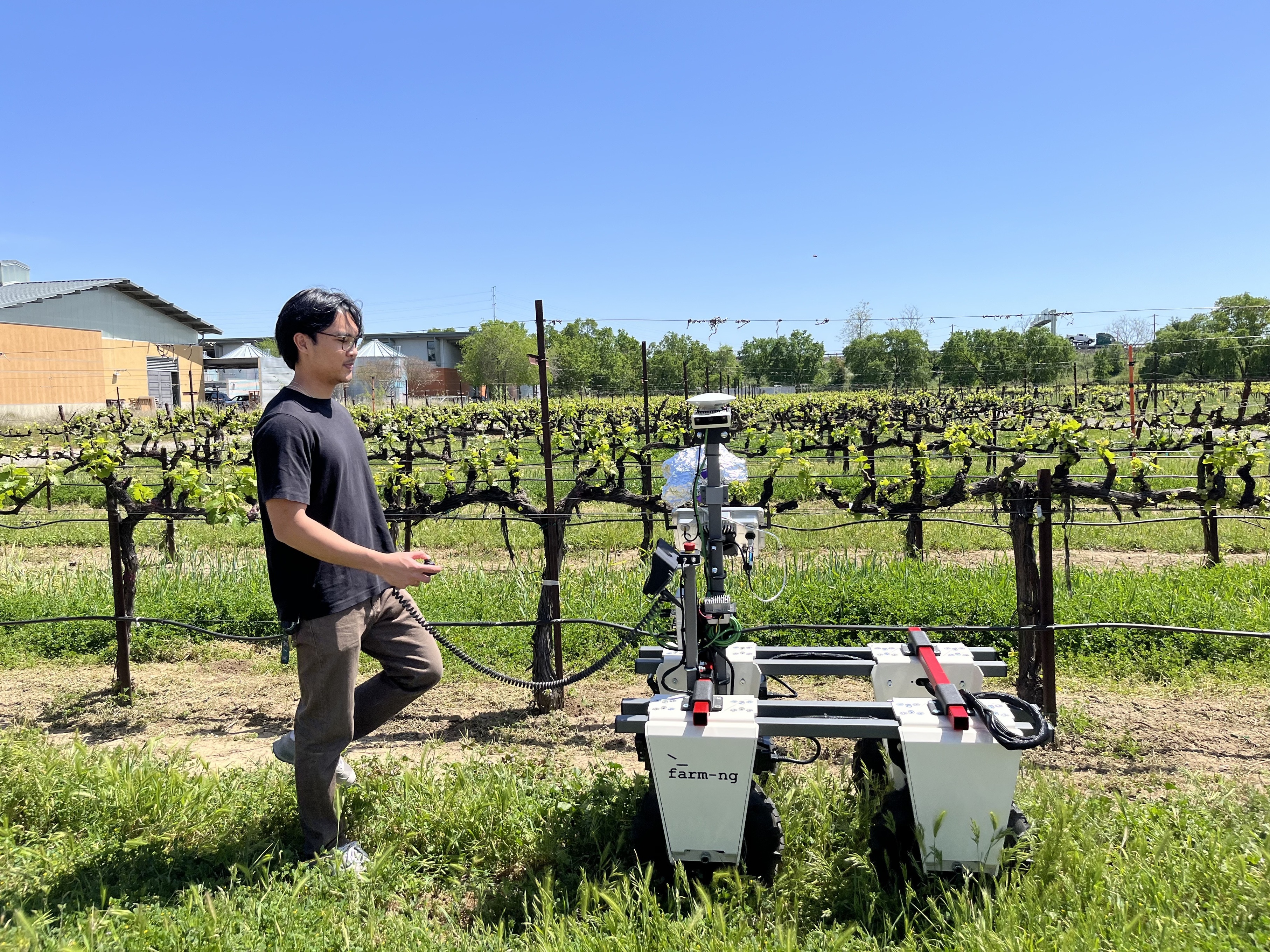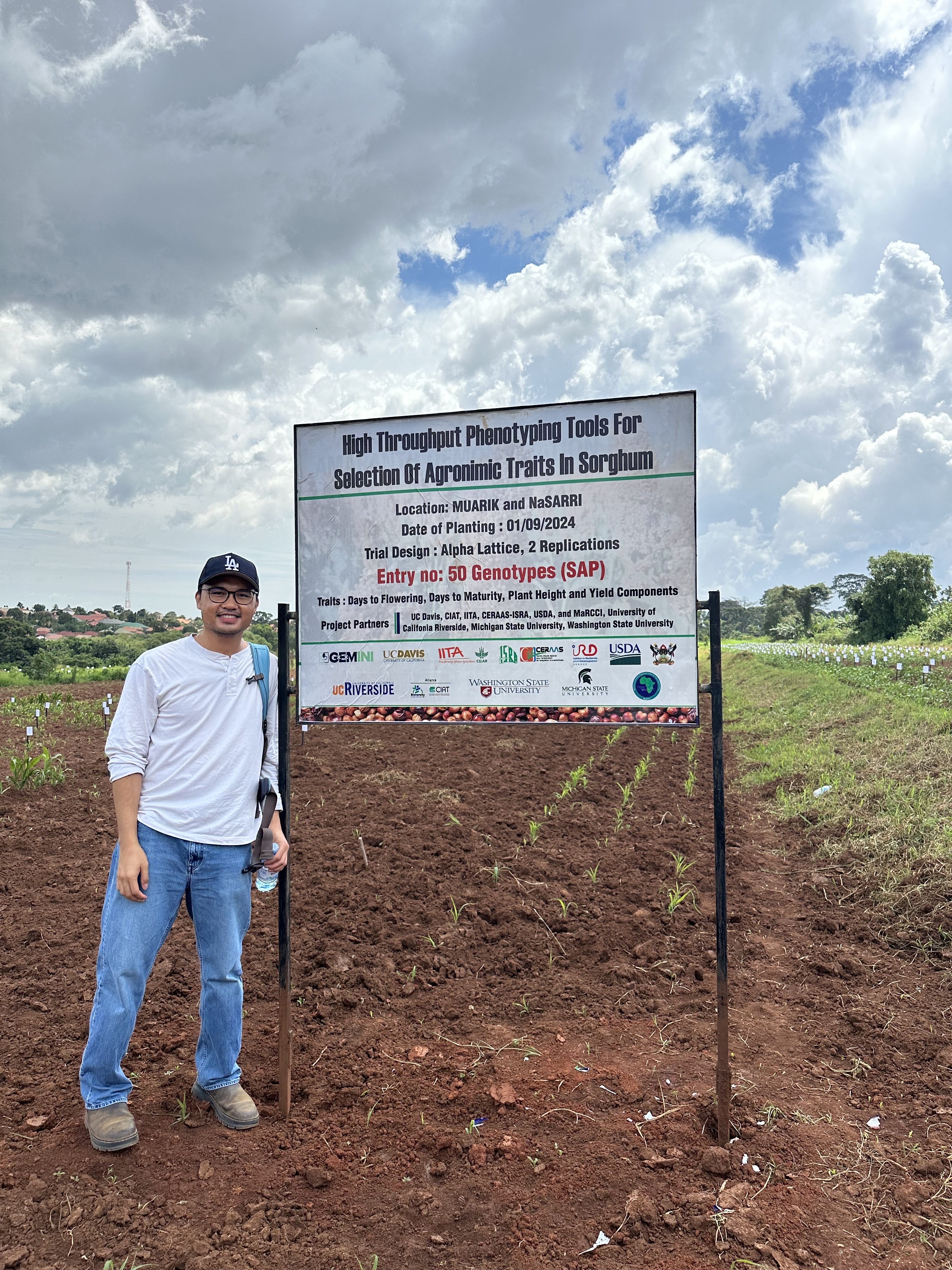Q & A with Earl Ranario
GEMINI Team Spotlight
Quick Summary
- Learn more about the GEMINI team in our series of team member spotlights
Let's continue our tour of the GEMINI team by talking with Earl Ranario, another graduate student on the sensing team.
Please introduce yourself: who are you, where are you from, and what is your educational/professional background?
ER: My name is Earl Ranario, and I am a Ph.D. student working under Dr. Mason Earles. Originally from the Philippines, I lived a portion of my childhood in Arkansas but now reside in Sacramento, California. I earned my Bachelor's degree at UC Davis, where I focused primarily on deploying sensors for high-throughput phenotyping in agricultural research.

What is your role within GEMINI?
ER: Within the GEMINI project, my role involves supporting the deployment of AI-enabled phenotyping tools on both the hardware and software fronts. I process the data collected by these sensors and integrate it into a phenotyping pipeline designed to extract favorable traits for breeding programs. This pipeline will be accessible internationally through an intuitive app that requires no coding experience. Additionally, I conduct research on leveraging synthetic data to strengthen model training for trait detection and extraction.
How did you end up working with GEMINI and what interests you most about this project?
ER: My involvement with the GEMINI project began through a series of conversations that aligned with my growing interests. During my final years as an undergraduate, I developed a strong passion for creating plant phenotyping tools, which ultimately led me to this opportunity. I had an internship with Corteva Agriscience which was then followed by a research fellowship under AIFS (AI Institute for Next Generation Food Systems). A lot of the project leads are involved in AIFS, which led me to find this opportunity.
Is there anything particularly exciting you are working on now or in the near future that you would like to share?
ER: My current research focuses on utilizing diverse datasets (particularly images) to train highly generalizable models capable of performing across different environments, sensor types, and plant varieties. The goal is to eliminate the need for end-users to train models from scratch or manually label large datasets to achieve high performance.
What do you like to do outside of work (personal hobbies and interests)?
ER: Outside of research, I enjoy playing basketball and musical instruments such as the bass guitar and saxophone. I also have a passion for baking, particularly French pastries, although I don’t find myself particularly good at it!

